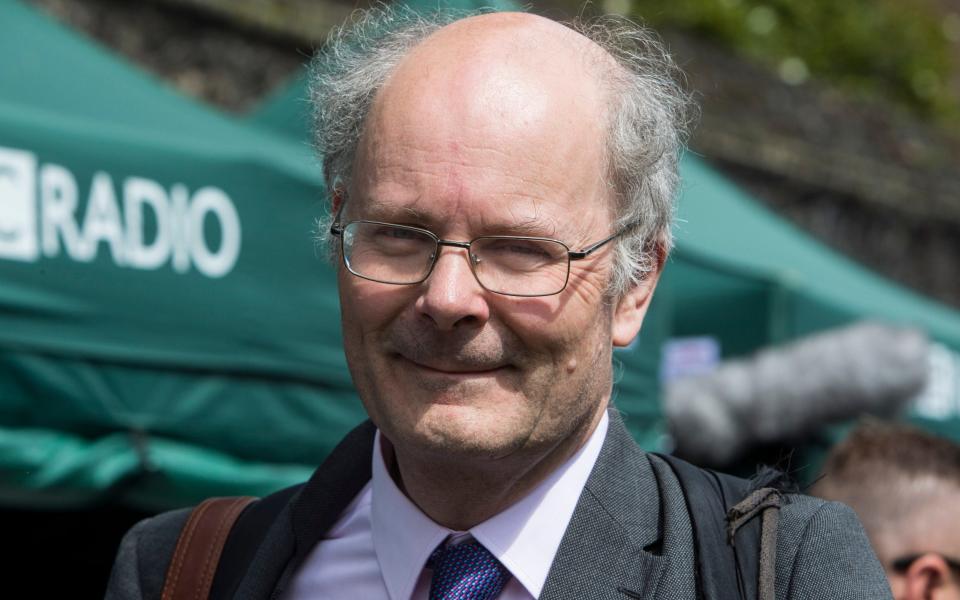Rishi Sunak’s Conservatives could record the worst outcome in the party’s history at the next election by collapsing to as few as 130 seats, Prof Sir John Curtice has said.
The polling expert said that divisions within the party over immigration were exacerbating the situation, meaning that Tory MPs opposing the Prime Minister’s Rwanda Bill “are potentially playing with fire”.
Writing for The Telegraph, the professor of politics at Strathclyde University said that Mr Sunak had experienced a “frustrating autumn” because multiple attempts to reset his premiership had all failed to improve the polls.
In the middle of September, before Mr Sunak announced changes to net zero policies – including delaying the ban on new petrol cars from 2030 to 2035 and pushing back the ban on new oil boiler sales from 2026 to 2035 – the Tories were polling 26 per cent on average.
Labour were 18 points ahead on 44 per cent.
Since then, as well as the watering down of net zero measures, Mr Sunak has had a string of set-piece political events in which he has sought to regain momentum.
In October, he used his party conference speech to scrap HS2’s northern leg from Birmingham to Manchester and promised a change from a political system that he said had been “broken” for 30 years.
Last month, he unveiled the Government’s legislative agenda in the King’s Speech, carried out a Cabinet reshuffle that included the eye-catching appointment of David Cameron as Foreign Secretary, and delivered a 2 per cent cut to the rate of National Insurance in the Autumn Statement.

However, Sir John said that immediately prior to the announcement of new policies on immigration last week, the Tories were still on just 26 per cent in the polls, with Labour enjoying a 17-point lead that was only down a point on mid-September because Labour’s own tally had slipped a point to 43 per cent.
He said that if the voting patterns continued to the next election the Tories would be “lucky to win much more than 200 seats” and could fare considerably worse.
“If these patterns were to be replicated in a general election, the outcome for the Conservatives could be bleak indeed – maybe as few as 130 seats, the worst outcome in the party’s history,” he said.
Such a result would be below the 165 Conservative MPs returned under the leadership of John Major in 1997, when Tony Blair achieved a landslide that elected 418 Labour MPs and gave his government a 179-seat majority.
It would also be a spectacular reversal of the 2019 election, when Boris Johnson won 365 seats.
In a speech on Tuesday to mark four years since that election, the Labour leader Sir Keir Starmer is due to accuse the Tories of “fighting like rats in a sack” and presiding over a “miserable chapter of decline”.
‘Stopped listening’
Sir John warned that the public seemed to have “stopped listening” to what the Tories had to say.
He also said that Mr Sunak’s recent focus on immigration had “not gone well” and risked making things worse, with a chance that the Rwanda Bill “could divide the party just as [Theresa] May’s ill-fated Brexit deal did in 2019”.
“Even though the polls have repeatedly indicated that the Government’s Rwanda policy is relatively popular – at least among those who voted Conservative in 2019 – the first polls since this week’s developments suggest they also are unlikely to move the electoral dial,” he said.
“We should not be surprised. Although many 2019 Conservative voters are unhappy about the level of legal and ‘illegal’ immigration, those who feel that immigration has gone up a lot are not especially likely to say they will not vote Conservative again. Surprising as it may seem, the issue has played relatively little role in bringing about the decline in Conservative fortunes.”
In contrast, he said that 2019 Tory voters who think that the economy is doing badly or that the NHS has got worse “are especially likely to have stopped supporting the party”.
He said last week’s events, including the resignation of Robert Jenrick as immigration minister, would cement the perception of the Conservatives as a divided party. “Divided parties rarely prosper at the polls,” he said.
Sir John added: “In pursuing their disagreements with Mr Sunak over immigration, Tory MPs should realise they are potentially playing with fire.”

